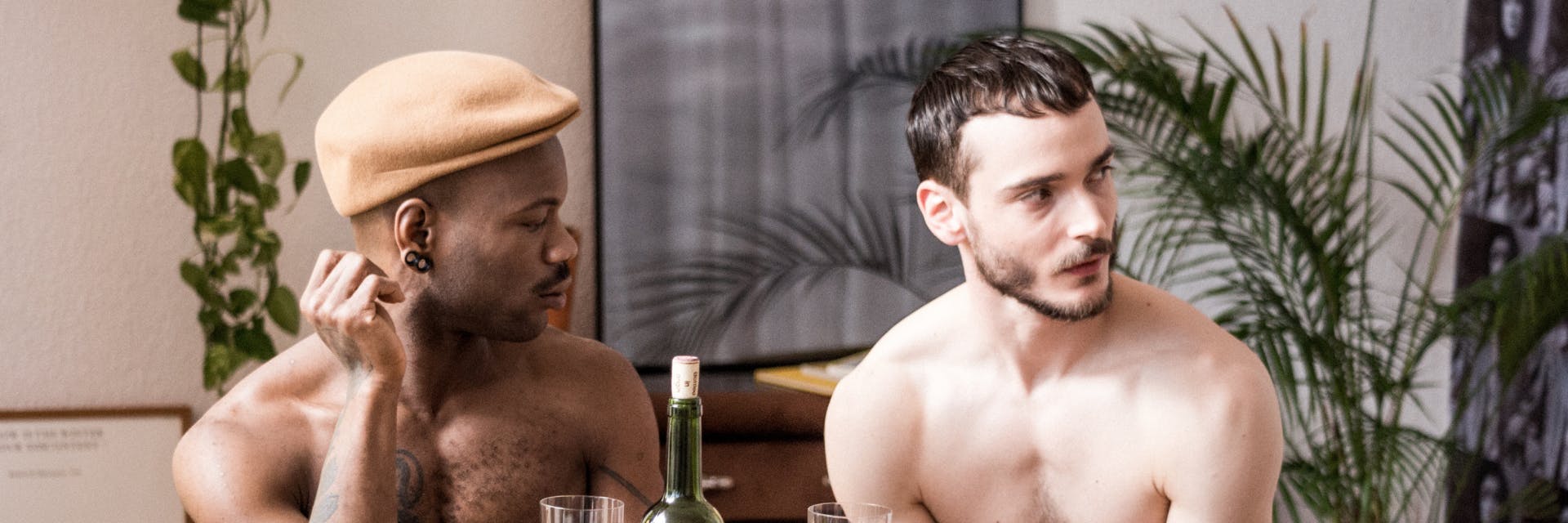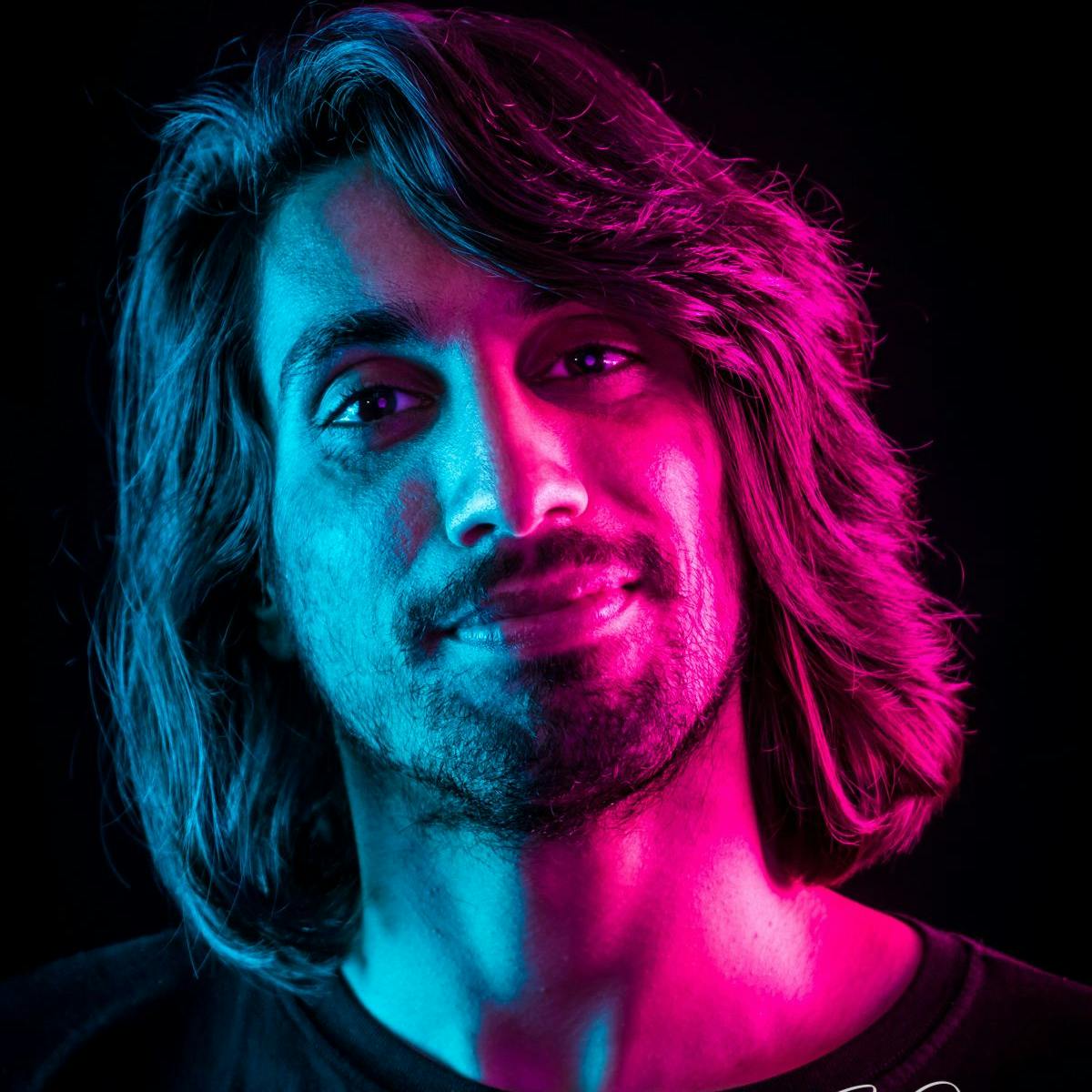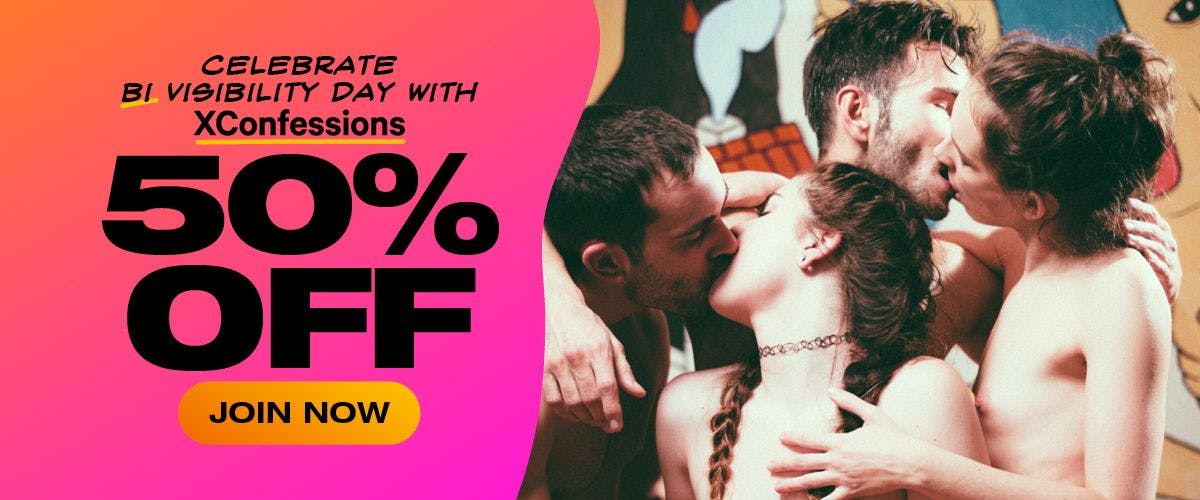

Bisexual Erasure: Why Bi Visibility is So Important
Bisexual Erasure: Why Bi Visibility is So Important
“Being a bi person of colour can be incredibly difficult” — Vaneet Mehta shares his experiences for Bi Visibility Day
“Being a bi person of colour can be incredibly difficult” — Vaneet Mehta shares his experiences for Bi Visibility Day
To celebrate Bi Visbility Day, I've invited Vaneet Mehta onto the Lust Zine to write about his experiences as a bisexual person of colour, and why bi visibility is so important.
Visibility is so important. It can help you find other people like you, understand who you are and make sense of the world around you. Unfortunately, so many bisexual people feel invisible. Why? Because we live in a monosexist world. A world that deals in binaries. That only allows for the existence of two states; gay or straight.
Because of this, bisexual people are erased. Bisexual women are told that they're actually straight, that they only get with women to gain the attention of men, that it's just a little bit of fun. Bisexual men are told that they're actually gay. That they're just in denial or confused and will soon come all the way out and accept who they are. Bisexual people of other genders are erased entirely from that narrative. In a world that deals in binaries, only men and women are seen to be real.
As a bisexual man, I've so often been told that I don't exist. I’ve been told that very few people are actually bisexual (which isn’t true), that I prefer men (which, even if true, doesn’t mean anything) and that I’ll figure it out. But I already have. I went through over a decade of figuring it out. And people still won’t accept it.
Visibility plays a big part here, or should I say the lack of visibility. Growing up, I wasn’t taught anything about LGBTQ+ identities. Section 28 in the UK meant that LGBTQ+ identities weren’t allowed to be taught in schools. This wasn’t revoked until 2000 in Scotland and 2003 in the rest of the UK. I was 11 in 2003, had recently started to have “confusing” feelings for the boys in my class, and was about to enter secondary school.
"Unfortunately, so many bisexual people feel invisible. Why? Because we live in a monosexist world. A world that deals in binaries. That only allows for the existence of two states; gay or straight."
Whilst section 28 was revoked in my first year of high school, the curriculum wasn’t updated. LGBTQ+ identities were not taught in school, in my school at the very least. However, I was aware of lesbian and gay. I had seen characters on TV, people in media, singers and actors, who were gay or lesbian. I had seen love and affection between people of the same gender.
But nothing explained my feelings. Whilst I was having “confusing” feelings about boys, I was also crushing on multiple girls. I didn’t understand what this meant. My understanding of the world was this binary of what I had been taught. I’m either straight and fancy women or gay and fancy men. I couldn’t be…both?
Something was wrong. I tried looking it up and I was told I was gay. That I couldn’t be into girls if I was into boys, that I’m clearly in denial about my attraction and should come out. But that didn’t make sense to me. I entered a state where I constantly doubted myself, my every feeling for other people. Whether they were real.
I hit an impasse and had to make a choice. I chose straight. Whilst I was aware of gay, I was also aware of how the world saw it. As something bad, awful, wrong. I decided to explain my feelings for men away, that it was just puberty and when my hormones settle down, these feelings will go away.
But they didn’t. I eventually learnt of bisexuality when I was 17, a whole 6/7 years later. But it was immediately invalidated at the same time. Said to not exist. Said that the person, the one who had just come out as this eye opening new word, was just gay and should face the facts.
And so I spent years confused, denying myself, until I couldn’t anymore. Until I had to. Had to face the reality that I was in love with a man and gay just didn’t make sense. I had to be bisexual, even if bisexual isn’t real, I had to be.
I think about how much visibility could have helped me. All those shows where the characters went from straight to gay, how if just once they could have come out as bisexual, to help me realise that I really do exist. How the education system failed me. Failed to provide the information I needed. Failed to cultivate a space where gay wasn’t seen as derogatory.
This is why bi visibility day is so important. The sheer lack of visibility causes so much harm to so many people. Statistics from Stonewall show that bi men and women experience higher rates of anxiety, self-harm and suicidal ideation than their gay or lesbian counterparts [1]. This comes as no surprise when you look at the ridiculously low rates of coming out, with 46% of bi men not out to anyone in their family [2].
It is the binary construct, the monosexism, in society that stops people from coming out and being closeted has a huge detrimental effect on your mental health. I should know, I lived it. I lived with suicidal ideation, still do even if it is under control now. I live with anxiety and depression. So much of this was a result of my struggle with my identity.
This struggle can’t be removed from the other parts of my identity, however. As a British Asian man, a person of Indian heritage, who grew up in a predominantly South Asian area, this played an important part in my struggle. Whilst societal expectations of men are, in general, entrenched in toxic masculinity, this becomes almost suffocating within my British Indian community.
Our community enforces incredibly traditional gender roles where men are expected to be strong, to provide. But I never fell in line with this. I didn’t like going to the gym, I was emotional and cried a lot, I liked playing with soft toys. This gained me disdain from the community. My Dad used to berate me, to tell me to stop being such a girl. My peers in school called me gay and a batty boy. My community ostracised me, othered me.
I knew I could never be myself in these spaces. When I was struggling with my attraction to boys, I knew that if I were ever to voice this, I would only exacerbate the abuse I was experiencing. Even since coming out, I don’t feel incredibly comfortable in these spaces. The same fear rises up in me, the comments or looks I may garner as a result of my identity.
"Being a bi person of colour can be incredibly difficult. It becomes hard to be in your cultural community as there is a fear of discrimination in these spaces. However, being in LGBTQ+ spaces isn't much better."
Being a bi person of colour can be incredibly difficult. It becomes hard to be in your cultural community as there is a fear of discrimination in these spaces. However, being in LGBTQ+ spaces isn't much better. These spaces are so often owned and dominated by white cis gay men and mean bi people of colour may experience both racism and biphobia.
In fact, according to Stonewall [2], 51% of Black, Asian and minority ethnic (BAME) people said they experienced discrimination because of their race within their local LGBTQ+ community. 27% of bi women and 18% of bi men said they experienced discrimination because of their sexuality in LGBTQ+ spaces, this is compared to 9% of lesbians and 4% of gay men.
This discrimination is brought over from society at large. It is the same teachings, the same misconceptions and bigotry, that society teaches the world that unfortunately isn’t unlearnt. The LGBTQ+ community is just a reflection of the world around it, no more progressive than the rest of society. But to many, including myself, this discrimination is the one that hurts the most.
You hope you can enter these spaces and feel safe, find others like you, build a network, gain support and access resources. But this discrimination locks you out from this. It shoves you back into the cold, the dark and brutal world. This lack of space means that we continue to struggle and suffer.
There are many incredible people who recognise this, who spend their time and money creating events and spaces to accommodate people who often find themselves alone. There are so many wonderful bi communities in the UK, and globally, who work to support bi people. Communities such as Biscuit, Bi Survivors Network, Bisexual Index and Bi Pride UK. Likewise, there are groups such as Hungama, Imaan and UK Black Pride who work tirelessly to support LGBTQ+ people of colour.
But the issue is, so often, funding. Some of these communities are self-funded. They run on shoestring budgets and those running it often use their own money and find themselves burnt out from having to prop up a whole community often by themselves.
Something has to change. Thankfully, so much already is. LGBTQ+ education is happening in schools across the UK now. Representation on screens is becoming ever more prevalent, especially for bisexuality. And funding is increasing for our issues, with Bi Pride UK receiving a large amount of funding this year.
But there is more that needs to be done. We need people to stand with us, to support bisexual people, to give us space, resources and funding. We need those within the LGBTQ+ community to do better by us, to educate themselves on others in their community, to stand in solidarity with us and help us. We can’t do all of this work alone, nor should it fall solely to us. Those in power need to dismantle this binary system and help create visibility for bisexual people, not just for one day a year but all year round.
References:
50% off XConfessions for Bi Visibility Day

